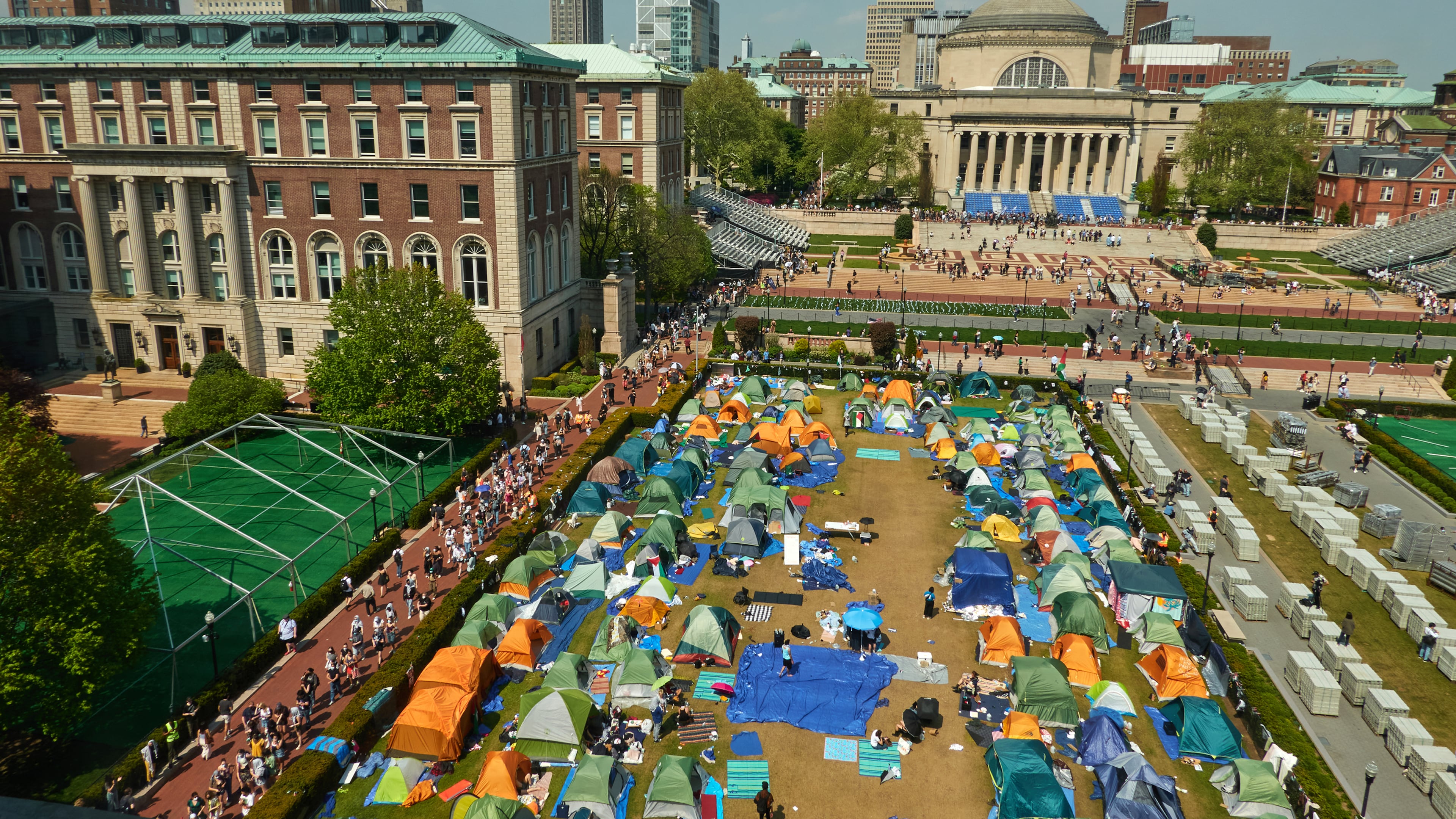Columbia University has failed me as a student

I’m a Zionist Orthodox Jewish Columbia student, and Columbia has failed me. Not because of what you might think — that it has trampled free speech or conversely or failed to halt antisemitism. Columbia has failed to foster the free exchange of ideas.
Entering Columbia’s gates at the beginning of this year I was tormented by the usual first-year angst. Will I make friends? Will I succeed academically? Will that cute girl I met at orientation talk to me again? I dreamed of the constructive debates that I’d engage with. However, striving to understand contrasting positions in college has been futile.
I thought college would challenge me, enabling me to engage with those from divergent backgrounds. I grew up in a “Modern Orthodox” Jewish household. To me, it meant accepting the strict interpretations of the Torah while embracing the outside world. For example, I wouldn’t eat at a non-kosher McDonald’s but I’d eat a kosher hamburger while wearing a Knicks jersey. Additionally, Israel was a topic at every Sabbath meal. In this way, I was typical of most members of my community. The state’s right to exist was a given, but we railed against some of its policies.

My first meaningful encounter with Zionist philosophy was at my summer camp. I was taught the importance of the land of Israel to the Jewish faith. Theodor Herzl’s “Der Judenstaat” and the Uganda Scheme were analyzed. I learned that Israel had miraculously risen from the ashes of Treblinka to take its rightful place as a strong, independent country and haven for the Jewish people. Zionism, the legitimacy of a Jewish state, was unchallenged
Later, I began to understand that the realization of the Zionist dream had significant adverse consequences for others. I began to learn that Yom Ha’atzmaut (Israel’s Independence Day) also marks the Nakba (Arabic for “catastrophe”), and commemorates a time when tragically high numbers of Palestinians fled from their homes. I’ve learned how some Israeli settlers have inflicted incredible amounts of pain on neighboring Palestinian communities. I was so shocked by the actions of my Zionist idols that I rejected their ideology. I argued with my father and teachers about the implications of Israeli statehood and eventually quit my position as head of my local Zionist youth group.
But over time, and with a great personal struggle, I reevaluated my conclusions and began compulsively reading articles from both sides of the issue — from the Jerusalem Post to Al-Jazeera. I refined my opinions but I have never let them crystallize into final form. To paraphrase Plato’s “Symposium,” a required Columbia text, I learned that the pursuit of truth has a beauty of its own and that seemingly contradictory truths can coexist. Or in the words of F. Scott Fitzgerald, intelligence is the “ability to hold two opposed ideas in the mind at the same time, and still retain the ability to function.”
My biggest concern over the past few months hasn’t been only the acute challenges to Zionists and Jews at Columbia. An even greater concern has been that everyone has presumed to know my political and ethical positions without the exchange of a single sentence. One side shames me for my support of the only Jewish state and one side shames me for my concerns for civilians. I was told I had to either care for civilian casualties in Rafah or concern for the Israeli hostages still in Gaza. They present me with a false choice. I’m concerned about both. And it is naive to believe this festers solely from students. Professors presume to speak for me in the New York Times and the Columbia Spectator.
I don’t have a good solution for a conflict whose roots go back more than a century. I don’t know how to resolve the tension between constitutional guarantees of free speech and the university’s responsibilities to maintain the order of an academic institution. But I do try to be as open-minded as I can despite the conflicting pressures. Unfortunately, even my professors, most of whom I’d previously regarded as devoted to the clarification of ideas and not the advocacy of political positions, have coalesced into opposing factions: Zionist versus anti-Zionist; the side accused of supporting genocide and the side accused of antisemitism. Reason is helpless in the face of impassioned rhetoric. The search for common ground has been abandoned; the center has not held.
Tribalism has obliterated my hope that Columbia would serve as a platform for meaningful dialogue. Yet, wearing my yarmulke — a proclamation about my religious identity — has become a political statement, somehow placing me off limits to people with whom I share many, but not all, ideals. I am saddened that some who wear keffiyehs avert their gaze when I seek their engagement. In practice, many demonstrations have become a mechanism to coerce people into agreement. Though they may serve to promote an issue some believe has been neglected, clearly they don’t serve to narrow gaps.
So, I can’t help feeling that Columbia has failed me. Certainly, the administration bears some responsibility for the situation. But blame also falls on the professors who have failed to place learning before politics. Even if we were grading on a curve, Columbia has effectively failed its primary function: “to advance knowledge and learning at the highest level.” So, yes. I am a Zionist Jewish Columbia student. Guilty as charged, but please, can everyone just stop yelling?
Micah Oz Feit Mann is as an undergraduate at Columbia College from Atlanta.


